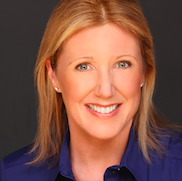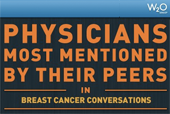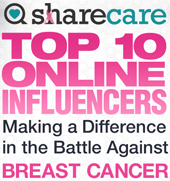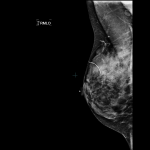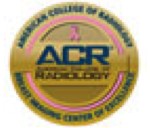Q & A: Laws regarding breast density?
October 19th, 2012Why are there laws in some states regarding women receiving their breast density information?
- A wonderful grass-roots organization has been founded by women personally affected by the lack of information given to them regarding the density of their breasts (www.AreYouDense.org), and they are doing everything they can to address this issue for all women. Because of their advocacy, laws have recently been passed in Connecticut, Texas, Virginia, New York and California, requiring that women be informed of their density
Q&A : How can I find out if my breasts are dense?
October 18th, 2012- Don’t be surprised if your doctor does not know much about breast density. As the issue gains traction, the medical community will become more informed over time. For now, it is up to you to find out if your breasts are dense so you can protect yourself from advanced cancer.
Your density information should be in the official report from your mammogram, so ask your doctor for a copy of this report. Do not rely on the form letter you receive from the mammography center; this will not include your density (unless
Q & A: What does it mean to have dense breasts?
October 17th, 2012- Breast density is one of the strongest predictors of the failure of mammography to detect cancer. About half of women younger than 50 are dense, and 1/3 of women over 50 are dense. Up to half of breast cancers cannot be seen on the mammogram in women with dense breasts. This leads to missed cancers that are discovered at later stages, resulting in more invasive treatments and a poorer prognosis. 40,000 women in the U.S. die each year from breast cancer. Some of these women had dense breasts and didn’t know it; even though they
Q&A: Does Normal Mean No Cancer?
October 12th, 2012If I have a negative (normal) mammogram, does that mean I definitely don’t have breast cancer?
- Mammography is an imperfect test. A “normal mammogram” report does not mean that a woman does not have breast cancer. Overall, mammograms will pick up 80-90% of cancers. That’s pretty good, but there are still 10-20% of cancers that will not be seen, and will present as an “interval cancer” with a palpable lump.
The cancer detection rate plummets in women with dense breasts to only 40-50% of cancers picked up
Breast Cancer Awareness Month 2012: Why Breast Density Matters
October 4th, 2012As a breast imaging radiologist at Montclair Breast Center with over 12 years of experience practicing in my field, I can tell you based on voluminous evidence in the scientific literature as well as from clinical experience that if you have dense breast tissue (determined from a mammogram, not from physical exam), the odds of finding a cancer on your mammogram are about equal to a coin toss.
Even with the best digital technology and the most experienced reader, a cancer will not be detected mammographically in up to half of women with dense breasts,…
Read MoreLobbying the FDA to Mandate Breast Density Notification
February 8th, 2012In November I traveled to DC to issue a statement to the FDA advisory committee regarding breast density. Several radiologists, breast cancer patients and advocates, representatives from the American College of Radiology, as well as Karen Handel from the Susan G. Komen foundation were on hand to render opinions regarding a new rule being considered by the FDA, which would mandate the inclusion of breast density information in the official mammogram report that goes to the referring doctor, and that the radiology facility providing a mammogram would directly…
Read MoreDiagnosed with Breast Cancer as a New Mother, Sharon Shares her Story
December 6th, 2011In 2003, my mom friend Sharon was relishing her role as a new mother in her early 40’s. She’d given birth to her daughter in 2001, and was now busy chasing after an adorable toddler, navigating naptimes, bottles and diapers, while working in the banking industry in Manhattan. Her husband and their brother-in-law had renovated and opened a beautiful new restaurant, and life was very exciting.
The Symptom Leading to Diagnosis
Sharon had gone for yearly mammograms since turning 40, and the test had always been reported as normal. She had no family history of breast…
Read More8 Things You Can Do TODAY to Lower Your Risk of Advanced Breast Cancer
October 29th, 2011Breast Cancer Awareness Month ends on Monday. Of course awareness is important, but knowing what specific actions you can take to protect yourself against the disease is empowering. Breast cancer can strike anyone, with or without risk factors. However, there are several things you can do NOW to lessen the likelihood of advanced breast cancer happening to you.
1. Lace up and take a walk! According to the Women’s Health Initiative study, women who walked just 30 minutes per day at least 5 days a week (exercise pace, not a leisurely stroll) decreased their breast…
Read MoreBreast Density Advocates on Good Morning America
October 13th, 2011Nancy Cappello, PhD and JoAnn Pushkin were interviewed on Good Morning America last week, talking about their experiences as women doing “everything right”: mammograms every year, healthy lifestyle, annual checkups. Yet even though they were good, compliant patients, they both were diagnosed with advanced breast cancers. How did this happen? Well, they were never informed that they have dense breast tissue, which confers an increased risk for breast cancer, AND makes a mammogram so hard to read that up to half of cancers won’t be seen.
Since they were given “normal”…
Read MoreWhen Should I Have My First Mammogram?
October 4th, 2011General Guidelines
For most women, age 40 should be when you start having yearly mammograms in order to minimize your likelihood of developing advanced breast cancer (“Government Mammography Task Force vs. You”). Some doctors send their patients for a baseline mammogram at age 35, and I wouldn’t argue with that.
Family History
If you have a strong family history of breast cancer (mother or sister), start having your mammogram 10 years younger than the age that relative was diagnosed, OR at age 40, whichever is younger. For example, if your sister had breast cancer…
Read More
